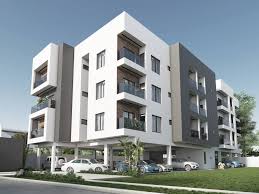Behind high walls and guarded gates lie some of Lagos State’s most expensive estates, built for people who can afford exclusivity, prestige, and tight security. These communities are carefully planned, where residents enjoy privacy and a lifestyle that separates them from the hustle of the city.
In these estates, one finds everything from apartment blocks to sprawling villas and mansions. They represent the top of luxury living in Lagos. According to The State of Lagos Housing Market Vol. 3, a pool of about 6,800 high-net-worth individuals, also known as HNWIs, together with steady investment from Nigerians in the diaspora, continue to drive the demand for these luxury properties.
Unlike other countries where government provides water, electricity, drainage, and security as part of urban development, many Lagos luxury estates bear these costs privately. The exclusivity of these estates does not come from government planning but from strict security, controlled access, and private management. Residents enjoy separation from less affluent neighborhoods, but they also face the same infrastructural challenges as others. They solve these problems privately, paying more for basic needs like electricity and water.
Property experts say that in Lagos, living in these high-end estates is not just about comfort but also about status. Realtors explained that prestige, privacy, and controlled access make these estates a prime choice for wealthy Nigerians, expatriates, and investors. However, the costs are high, and the prices keep rising every year.
One of the most popular estates is Victoria Garden City, widely known as VGC. The estate is located along the Lekki–Epe Expressway in Eti-Osa Local Government Area. VGC has earned a reputation as one of the most prestigious estates in Lagos, offering a combination of upscale living, modern infrastructure, and heavy security. The estate is well-planned, with landscaped boulevards, green areas, and recreational spaces. It also hosts commercial facilities such as the VGC Shopping Mall, Shoppers Place, supermarkets, restaurants, and specialty stores, which make it almost self-sufficient.
Realtors say one of VGC’s strongest attractions is its drainage system and serene environment, which gives residents a sense of order compared to the chaotic traffic and flooding often seen in other parts of Lagos. Residents range from business executives to politicians and entertainment stars who want both security and convenience.
The housing options in VGC are diverse. They include detached duplexes, semi-detached houses, terraced apartments, and luxury villas. Prices have gone up in 2025, reflecting the strong demand. Current rental rates show that a three-bedroom home in VGC now costs between ₦5.5 million and ₦13 million per year, while a four-bedroom unit goes for ₦6 million to ₦14 million. Five-bedroom duplexes are rented for ₦15 million to ₦18 million annually.
For buyers, the prices are even steeper. A three-bedroom apartment now sells between ₦120 million and ₦220 million. A four-bedroom house goes for between ₦135 million and ₦500 million depending on finishing and location within the estate. Five-bedroom duplexes are priced between ₦300 million and ₦650 million, while high-end terraced houses in prime corners of the estate can reach as much as ₦1.6 billion.
Real estate analysts believe that VGC is only one example of how exclusive estates in Lagos continue to push the boundaries of Nigeria’s property market. Others such as Banana Island, Ikoyi, and Lekki Phase 1 also remain on the list of luxury neighborhoods where property values keep rising despite the economic challenges facing the country.
The Lagos luxury property market shows no signs of slowing down. Experts predict that as long as wealthy Nigerians and diaspora investors continue to seek safe and secure homes, the demand will remain strong. However, the rising cost of living and lack of state-provided infrastructure mean that even in these high-end estates, residents must keep spending heavily to enjoy basic comfort.
